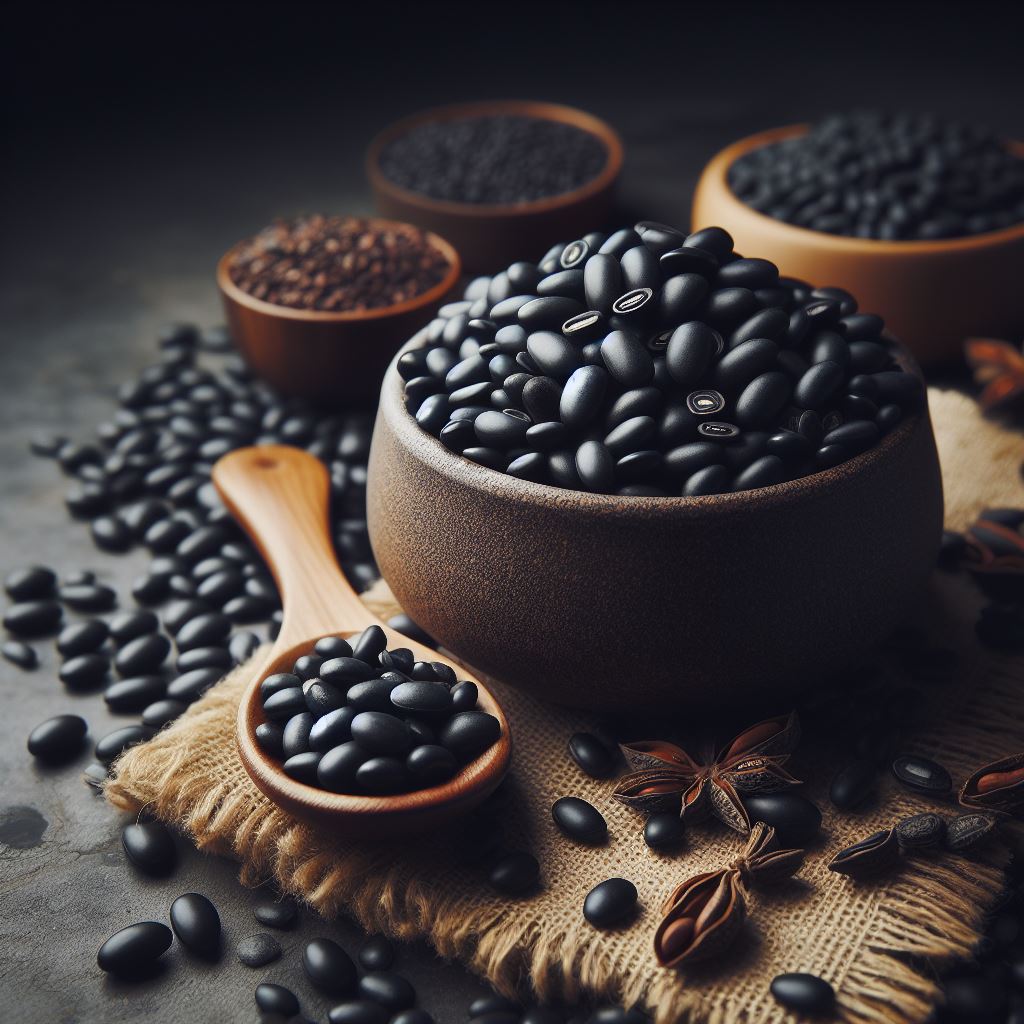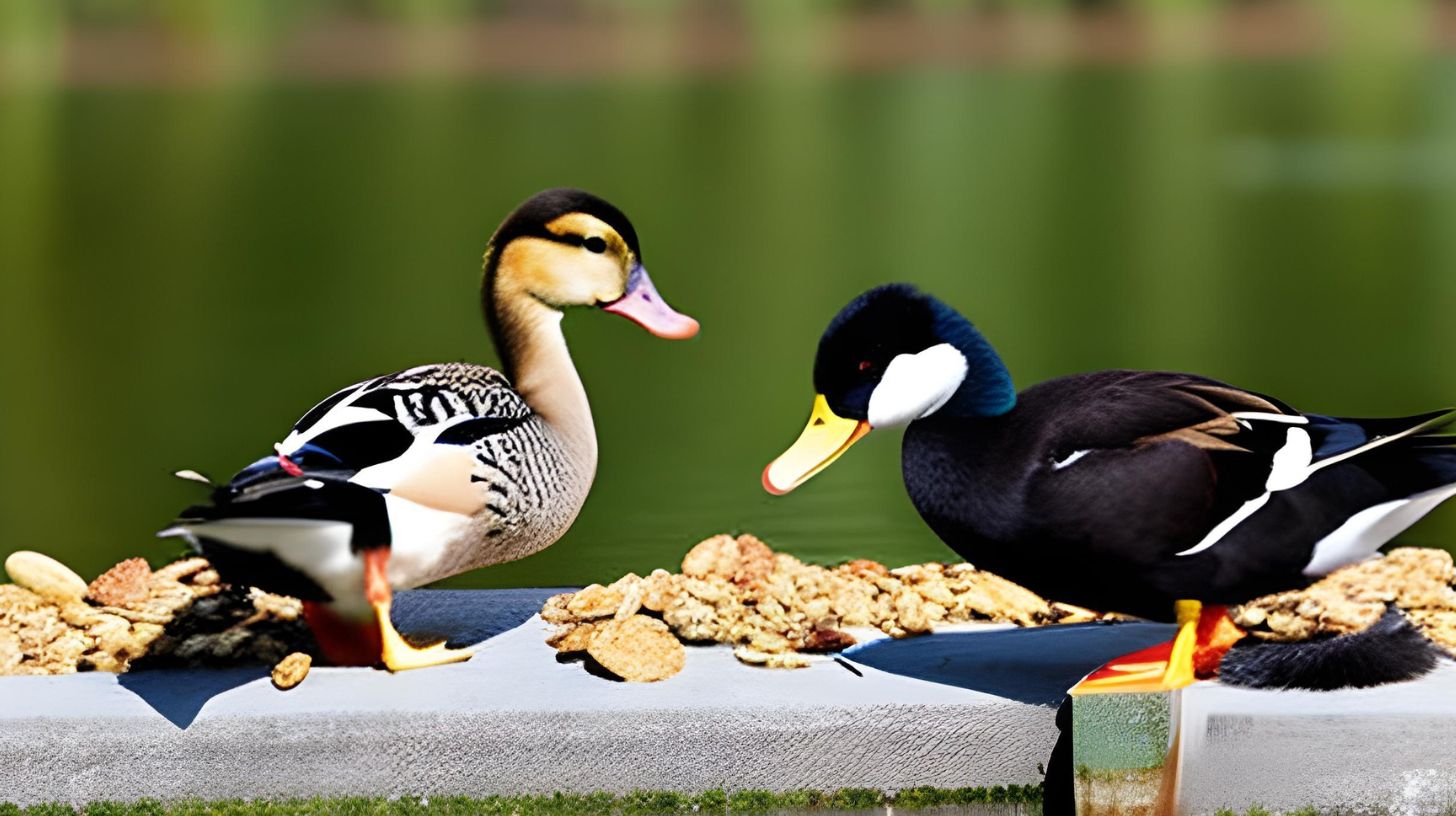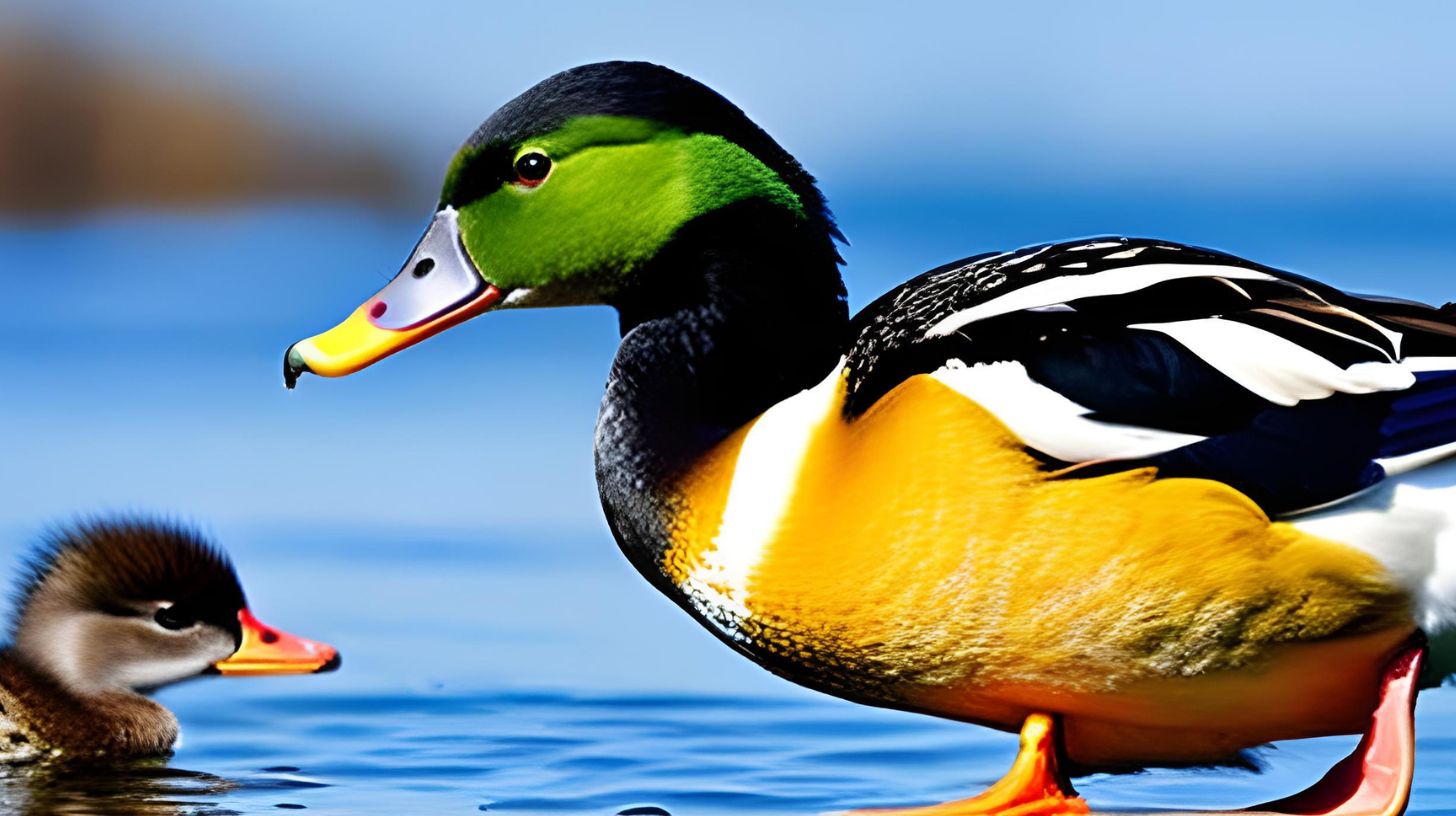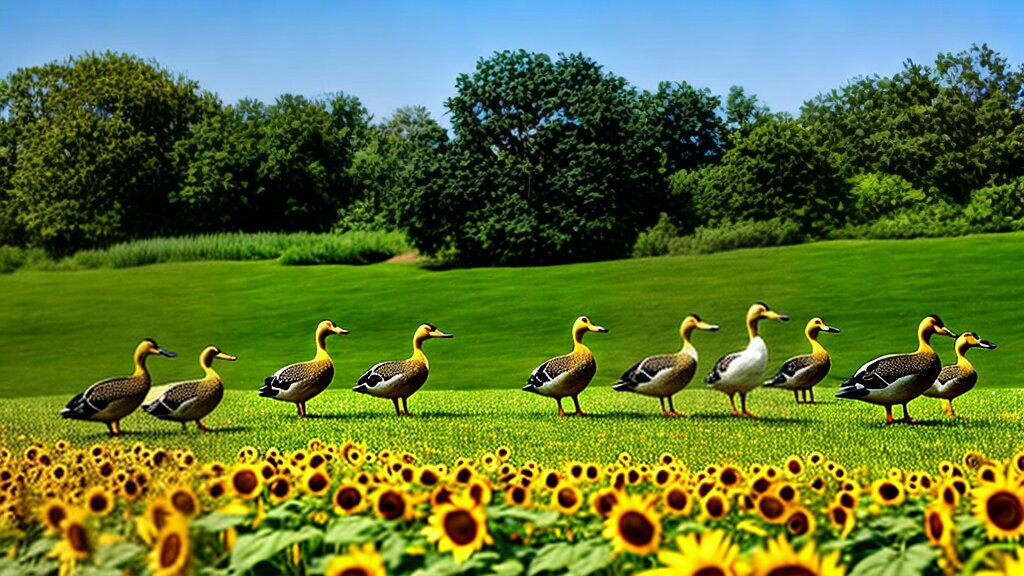Can Ducks Eat Black Beans? Diet Risks and Benefits

Table of content:
- Are Beans Safe for Ducks to Eat?
- How Do Duck Digestive Systems Handle Beans?
- Nutritional Value of Beans for Ducks
- Can Ducks Eat Black Beans? Key Considerations
- Healthy Feeding Tips for Pet Ducks
- Potential Health Issues When Feeding Ducks Beans
- How Much Beans Can I Feed My Ducks?
- Other Foods Ducks Can Eat Besides Beans?
- Conclusion on Feeding Black Beans to Ducks
Black beans are a nutrient-dense legume enjoyed by humans around the world. But can ducks eat black beans as well? As with any new food for ducks, there are important considerations regarding digestibility, nutrition, and potential toxicity. In this article, we’ll explore the key questions about feeding black beans to ducks:
Are Beans Safe for Ducks to Eat?
Certain raw beans contain anti-nutrients like phytohaemagglutinin, lectins, enzyme inhibitors, cyanogenic glycosides and tannins. These protective compounds can be toxic to some animals if consumed in excess. However, proper preparation through techniques like soaking, sprouting and cooking can remove or deactivate many of these anti-nutrients.
So, can ducks eat beans that haven’t been pre-treated in some way? Let’s take a closer look at how their digestive system handles beans.
How Do Duck Digestive Systems Handle Beans?
Ducks have a powerful gastrointestinal tract that evolved to derive nutrition from a diverse diet. As omnivores, they can digest seeds, grains, plants, insects and more. Their digestive system includes:
- Crop – A storage pouch before the stomach. Food is softened here before further breakdown.
- Gizzard – Contains small stones to grind up fibrous foods.
- Intestines – Up to 3 times the duck’s body length to allow thorough nutrient absorption.
This gives ducks flexibility in the foods they can process. However, raw or undercooked beans may pass through undigested and cause an intestinal blockage.
So proper bean preparation is important when feeding ducks to avoid potential digestive issues.
Nutritional Value of Beans for Ducks
Black beans are packed with important nutrients:
- Protein – Provides amino acids for growth and repair.
- Fibre – Promotes gut health and nutrient absorption.
- Iron – Essential for oxygen transport in the blood.
- Magnesium – Helps bones absorb calcium.
- Folate – Needed for new cell and DNA production.
Adding small amounts of cooked black beans can provide valuable nutrition in a duck’s diet.
Can Ducks Eat Black Beans? Key Considerations
When preparing black beans specifically for ducks, keep these key points in mind:
Soak Them First
Soaking beans causes the indigestible sugars and anti-nutrients to leach out into the water. For black beans, soak for at least 8 hours before further cooking. The soaking water must be discarded.
Cook Them Thoroughly
Proper cooking denatures the lectins and enzyme inhibitors. Black beans should be boiled rapidly for at least 10 minutes to destroy toxicity. Cooking in a pressure cooker is ideal.
Feed in Moderation
While nutritious for ducks, beans should be limited to no more than 15% of total feed. Offer small portions along with their normal insect, plant and pelleted feed. Monitor ducks for continued good health.
Avoid Bean Plants
Bean plants themselves, especially dry pods and shells, may still contain lectins toxic to ducks. Do not allow ducks access to growing bean plants.
By properly preparing black beans through soaking, cooking and moderation in feed amounts, ducks can gain nutritional benefits without digestive upset or toxicity issues. Monitor duck health and behavior when making any feed changes. Discontinue beans if any concerns arise.
Healthy Feeding Tips for Pet Ducks
Caring duck owners want to provide the best diet possible. Here are some tips:
Provide a nutritionally balanced commercial duck feed. Choose a complete life stage formula to meet all dietary needs. Offer feed designed specifically for ducks rather than chicken feed.
Supplement with fresh treats. Ducks benefit from variety! Some healthy treats 2-3 times a week include:
- Chopped dark leafy greens like kale, spinach or swiss chard
- Cooked sweet potato or winter squash cubes
- Sprouted seeds or legumes
- Frozen peas or corn thawed in water
- Chopped hard boiled eggs
Ensure fresh clean water is always available for drinking and preening. Provide a kiddie pool, pond or other water source ducks can immerse their head in.
Following these suggestions will help keep backyard ducks happy while meeting their health and safety needs! Monitor all birds closely when making dietary changes. Discontinue any food if adverse reactions occur. Consult an avian veterinarian for concerns.
Potential Health Issues When Feeding Ducks Beans
While nutritious and safe when properly prepared, incorrectly cooked beans can pose some risks for duck health, including:
Crop and Digestive Impaction
Hard bean shells and skins can get lodged in a duck’s crop pouch or other areas of the digestive tract. This blockage prevents normal function, leading to infection, nutritional deficiencies and even death if left untreated.
Nutritional Deficiencies
Raw or undercooked beans provide limited nutrient absorption due to active anti-nutrients. Birds filled up on beans may miss out on other important feed components leading to protein, vitamin and mineral deficiencies over time.
Bean Poisoning
Ingesting extremely high doses of certain uncooked bean toxins like phytohaemagglutinin can be acutely fatal. Symptoms appear rapidly and include vomiting, diarrhea, tremors, convulsions, coma or death through organ failure.
Increased Susceptibility to Disease
When ducks don’t receive fully balanced nutrition, immunity suffers. Ducks become more prone to contracting infectious illnesses through viruses, bacteria or parasites in the environment.
By properly preparing beans, limiting amounts and varying the diet, duck owners can promote health while avoiding these risks. Monitor all ducks closely when changing up food offerings.
How Much Beans Can I Feed My Ducks?
When incorporating newly introduced foods like beans:
- Transition slowly over 2-3 weeks
- Start with small portions like 1-2 teaspoons per duck
- Mix beans into commercial feed so ducks don’t fill up only on beans
- Gradually increase bean amount while monitoring duck health
- Adjust as needed if any concerns arise
- Beans should never exceed 15% of total feed volume
Pay attention to duck behavior and droppings when changing diet. Healthy ducks should be active, alert and social with solid, well-formed feces. Seek veterinary advice if any symptoms of digestive upset or malaise appear.
Other Foods Ducks Can Eat Besides Beans?
Ducks relish variety in their menu! Here are some other healthy, natural treats to offer:
Proteins
- Mealworms
- Hard boiled eggs
- Shrimp
- Canned fish packed in water
Fruits
- Grapes cut in half
- Melons like cantaloupe or watermelon
- Berries like chopped strawberries
Vegetables
- Cooked sweet potato
- Peas or corn
- Dark leafy greens like kale or spinach
- Squash cut into chunks
Grains
- Cooked brown rice
- Whole grain pasta
- Whole grain bread torn into pieces
Rotate different fruits, vegetables and proteins to keep ducks interested. Always introduce new items slowly watching for reactions. Having a diverse, balanced diet keeps backyard ducks thriving.
Conclusion on Feeding Black Beans to Ducks
Black beans can offer nutritional variety for domestic ducks when prepared properly. The keys are:
- Soaking then thoroughly cooking beans to remove anti-nutrients
- Limiting bean quantity to 15% or less of the total feed
- Monitoring duck health closely for any reaction
- Discontinuing beans at first sign of adverse effects
Raw or undercooked beans should never be fed. By preparing beans correctly and integrating modest amounts into a balanced diet, ducks can safely benefit from the nutrition.
Take care to transition slowly to any new feed and consult a veterinarian if ever unsure. Happy, healthy ducks require conscientious care and feeding by their owners. With some common sense precautions, black beans can be a digestible treat.
Welcome. I’m Adreena Shanum, the proud owner of this website, and I am incredibly passionate about animals, especially poultry. I founded adreenapets.com as a labor of love, stemming from my desire to share my knowledge and experiences with poultry enthusiasts worldwide.




